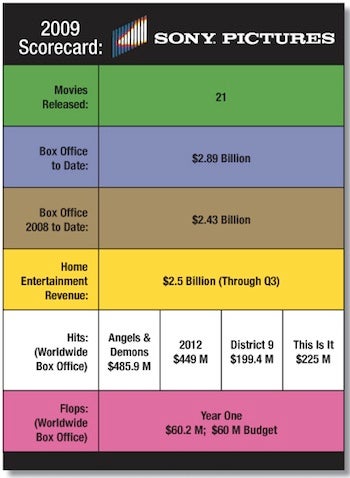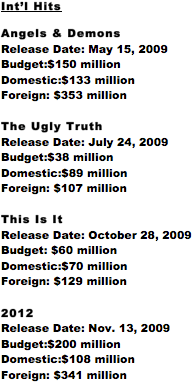In this season of mediocre showings, Sony Pictures has been having a remarkably good run, most of it due to some bottom-line dealmaking and marketing to the one area where box office dollars are still growing: the international multiplex.
The last two weekends make the point. With a massive $230 million opening weekend for “2012" setting a record for a non-sequel, and this weekend bringing the total box office to an astonishing $449 million, Sony’s international business this year has climbed to a new record for the company, totaling $1.6 billion.

The Roland Emmerich disaster picture is just the latest example of why it pays in Hollywood to push hard for movies with international potential.
With miserable domestic reviews, the movie failed to overwhelm American audiences, but the global campaign was carefully coordinated to maximize marketing efforts.
The revenue from abroad now comprises 76% of what the movie has brought in so far, and Sony projects it could end up bringing in $700 million worldwide.
Meanwhile “This Is It,” the Michael Jackson concert film to which Sony bought the rights for $60 million, has outgrown its soft domestic opening to become a legitimate hit thanks to the foreign box office. At $130 million thus far it represents nearly twice the domestic receipts.
“What I like most about these kinds of results, is that we do have a global marketing and distribution team, and there are not that many of them around,” said Jeff Blake, chairman of Sony Pictures Worldwide Marketing and Distribution, in an interview with TheWrap.




